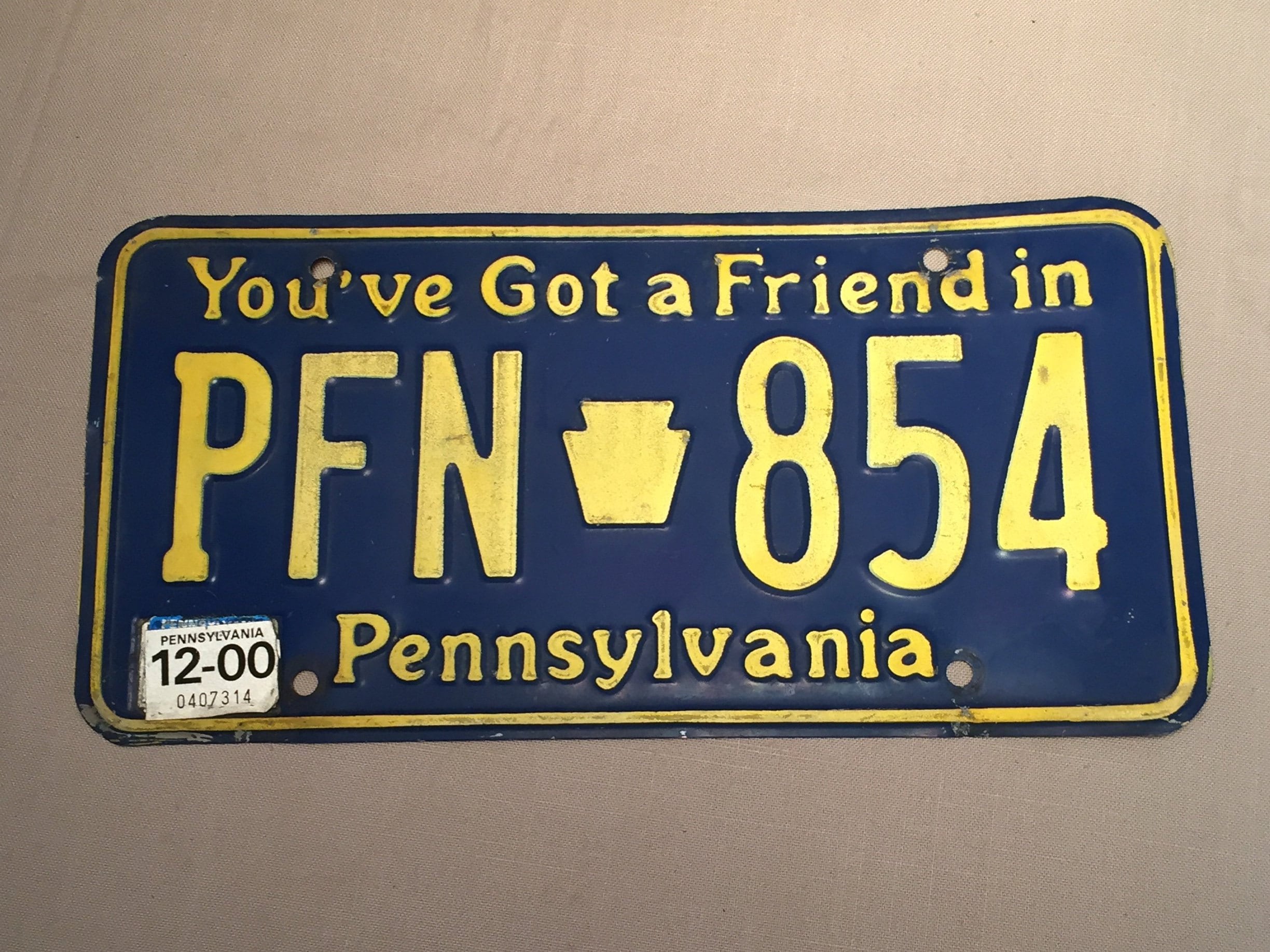History of the Phrase “You’ve Got a Friend in Pennsylvania”

The phrase “You’ve Got a Friend in Pennsylvania” originated in the early 19th century as a political slogan for the Democratic Party in the state of Pennsylvania. The phrase was first used in a campaign song written by William Wilkins, a Democratic politician from Pittsburgh. The song was a catchy tune that quickly became popular with voters, and the phrase “You’ve Got a Friend in Pennsylvania” became synonymous with the Democratic Party in the state.
Remember “You’ve Got a Friend in Pennsylvania”? Well, if you ever decide to visit, be sure to check out their best license plates. They’re known for their unique designs and witty slogans, and they’re sure to make you smile.
And who knows, you might even make a new friend while you’re there!
The phrase continued to be used by the Democratic Party in Pennsylvania throughout the 19th and 20th centuries. It was often used in campaign slogans and speeches, and it became a rallying cry for Democratic voters. The phrase also became associated with the state of Pennsylvania itself, and it is now used to describe the friendly and welcoming nature of the people of Pennsylvania.
In the quaint town of Pennsylvania, where friendships bloom like wildflowers, you’ll always find a companion to share life’s adventures. And if you’re in need of a reliable document to prove your identity, look no further than the new pa license.
With its sleek design and secure features, it’s the perfect way to navigate the bustling streets of this charming town, ensuring you’re always ready for whatever life throws your way.
Notable Individuals Associated with the Phrase
- William Wilkins: The author of the campaign song that first used the phrase “You’ve Got a Friend in Pennsylvania.”
- Andrew Jackson: The Democratic president who first used the phrase in a campaign speech.
- James Buchanan: The Democratic president from Pennsylvania who often used the phrase.
Cultural Significance and Impact of the Phrase, You’ve got a friend in pennsylvania
The phrase “You’ve Got a Friend in Pennsylvania” has had a significant cultural impact on the state of Pennsylvania. It has been used in countless songs, poems, and stories, and it has become a symbol of the state’s friendly and welcoming nature. The phrase has also been used to promote tourism in Pennsylvania, and it is now a common sight on billboards and other promotional materials.
Interpretations and Meanings

The phrase “You’ve Got a Friend in Pennsylvania” carries a range of interpretations and meanings, depending on the context in which it is used.
Primarily, the phrase conveys a sense of camaraderie, support, and reliability. It implies that the speaker is there for the listener, offering assistance, encouragement, or a listening ear whenever needed.
Emotional Connotations
The phrase evokes positive emotions, such as warmth, comfort, and reassurance. It suggests a strong bond of friendship and a willingness to extend a helping hand in times of difficulty.
Examples of Usage
- A friend might say, “You’ve got a friend in Pennsylvania,” to assure a loved one that they are always there for them, no matter what.
- A business associate might use the phrase to convey their commitment to a partnership or collaboration.
- A community leader might say, “You’ve got a friend in Pennsylvania,” to encourage residents and foster a sense of unity.
Applications and Uses: You’ve Got A Friend In Pennsylvania
The phrase “You’ve Got a Friend in Pennsylvania” has found practical applications and uses in various settings, including advertising, marketing, and communication.
In the realm of advertising and marketing, the phrase serves as a compelling slogan or tagline, conveying a sense of warmth, trust, and reliability. Businesses and organizations leverage its positive connotations to establish a friendly and approachable image, fostering connections with potential customers and building brand loyalty.
Communication
In interpersonal communication, the phrase signifies a genuine offer of support, friendship, and assistance. When uttered or written in a sincere tone, it can convey empathy, compassion, and a willingness to lend a helping hand. The phrase can strengthen relationships, bridge gaps, and create a sense of community among individuals.